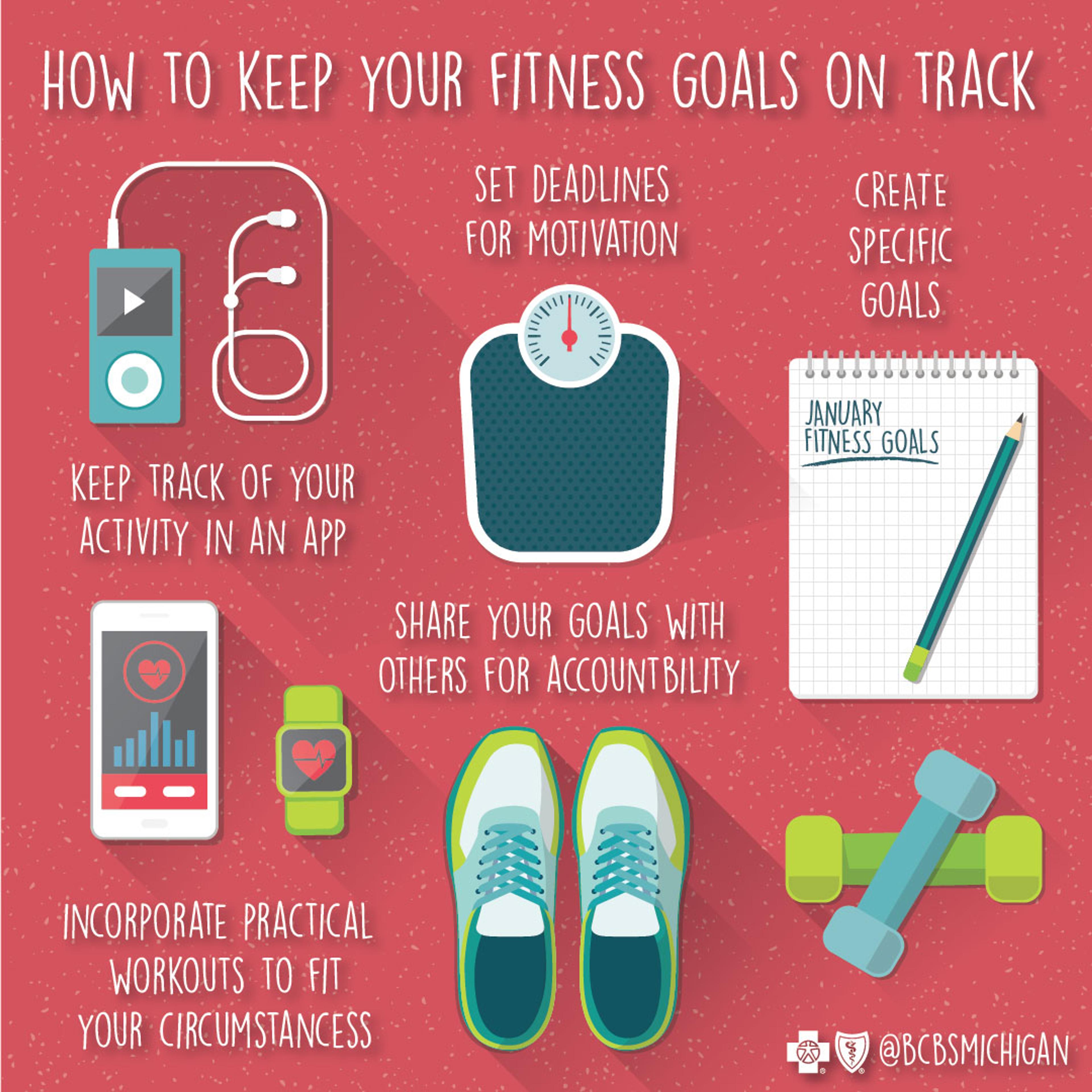
To be a success, you must be consistent. This applies to everything including work, school, finances and fitness. It requires you to stay the course despite ongoing challenges.
That's why it's important to take the "SMART" approach to goal setting. Create specific, measurable, achievable, relevant and time-related objectives. Within those, one can establish benchmarks or short-term goals for an extra level of accountability. This type of planning helps to keep you engaged and focused throughout the process.
Individuals with a support system are much more likely to achieve their goals. In fact, a study by the American Society of Training and Development (ASTD) found people have a 65% chance of succeeding if they commit with someone else. Accountability can come in the form of a journal, an app, friends or family. There is ample scientific evidence that proves fitness tracking works.

“I looked into a study from 2011 from the American Dietetic Association,” said Dan Muncey, onsite well-being coordinator at Blue Cross Blue Shield of Michigan, in 2019. “They did a meta-analysis of a bunch of different studies and it was consistent. [There was] a significant positive relationship between self-monitoring diet, physical activity, weight, and then the successful outcomes from that.”
On an episode of the A Healthier Michigan Podcast, hosted by Chuck Gaidica, he and Muncey discuss different ways to track your fitness progress.
Fitness training can start small and gradually increase over time. Just 10 minutes a day translates to 70 minutes of physical activity per week. That could be a simple walk around the block or a jog on a treadmill. Exercise is an integral part of the journey, but diet plays a much larger role.
“Are you eating what you should every single day,” asked Muncey. “Are you focusing on getting your five servings of fruits and vegetables? Are you focusing on eating nutrient dense food?”
When you're logging food, everything must be accounted for — good and bad. Burgers, cookies, candy and the like can hinder your results. By tracking and reviewing meals, you get a better understanding of what you eat and why. Were you truly hungry? Were you just sad, angry or bored? In certain cases, individuals may take progress photos and post them on social media for added encouragement.
“People have like a Flex Friday where they're showing, ‘Hey, I worked out today,’" explained Muncey. “It's just this opportunity to show others in your community that you are working at something… You don't know who that might inspire along the way.”
Want more content like this? Read these posts:
- How to Practice Portion Control
- Why Diets Don’t Work and Tips for Lasting Weight Loss
- Make the Most of Silver Sneakers
Photo credit: Antonio_Diaz






